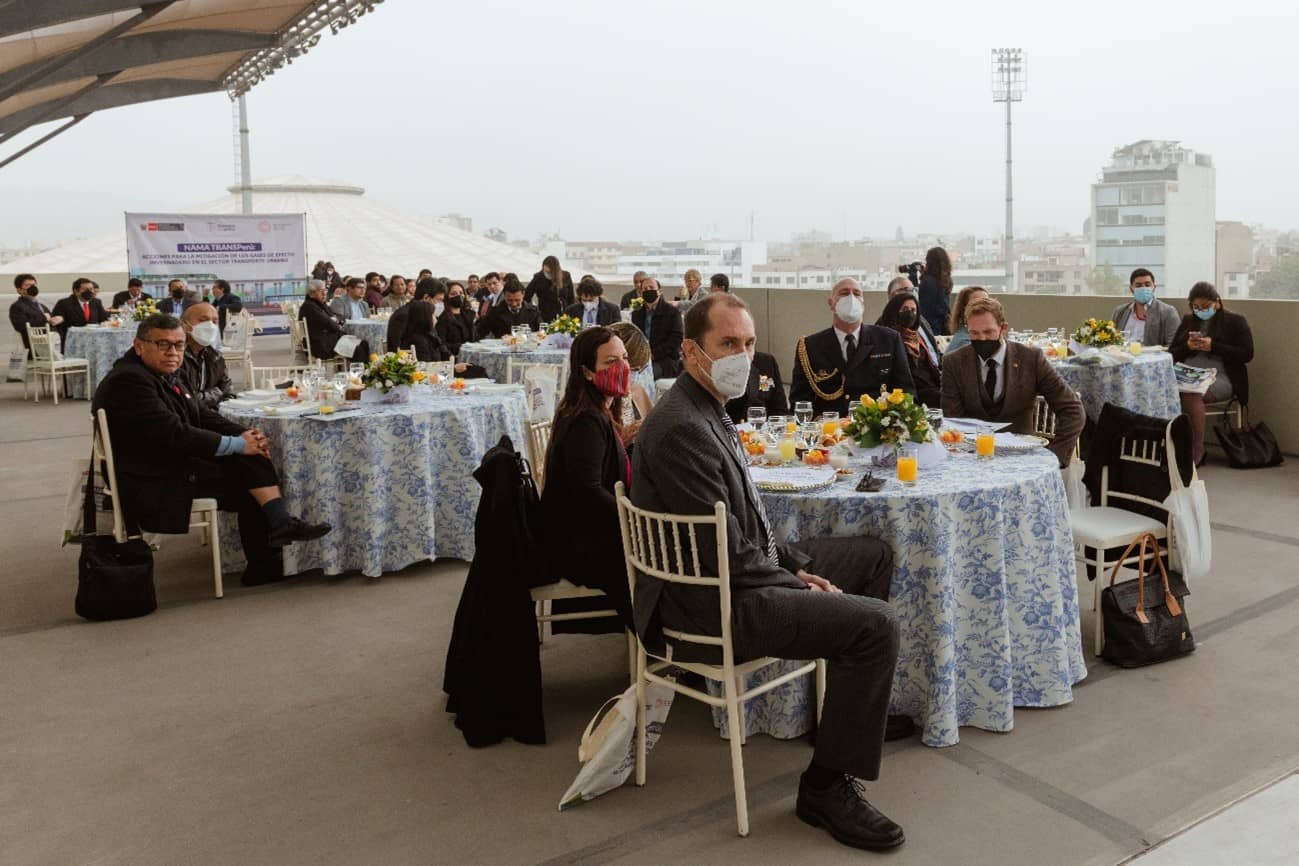TRANSPerú NAMA: Actions for the mitigation of greenhouse gases (GHG) in the urban transport sector: NAMA Support Project finishes implementation period

Disclaimer: This news piece was authored by the NAMA Support Project (NSP) “Peru – Sustainable Urban Transport.”
Since 2015, the Ministry of Transport and Communications (MTC) of Peru, through the General Directorate of Multimodal Transport Policy and Regulation, has been leading the implementation of the Sustainable Urban Transport NAMA – TRANSPerú, which brings together mitigation measures aimed at improving the quality of urban transport in Metropolitan Lima and Callao, as well as at the national level. MTC’s efforts to improve urban transport services are facilitated by the NAMA Facility climate finance in the form of a NAMA Support Project (NSP) for the NAMA TRANSPerú (also referred to as “Peru – Sustainable Urban Transport”). This NAMA focuses on promoting key structural changes that will ensure the transformation of the urban transport sector into a sustainable, low-carbon one, while providing high-quality transportation for all.
At the end of June 2022, the NSP’s technical cooperation (TC) component, which offered Peruvian counterparts technical assistance on the TRANSPerú NAMA, came to the end of its implementation period. To mark the occasion, MTC hosted the event “NAMA TRANSPerú: Actions for the mitigation of greenhouse gases (GHG) in the urban transport sector” to present the progress achieved so far. In this space, various actors, involved in the implementation of the Sustainable Urban Transport NSP, such as the MTC, the Metropolitan Municipality of Lima (MML) and the Urban Transport Authority for Lima and Callao (ATU), showed the progress achieved in the past years to improve the quality of public transport services, which contribute to the transformation of the transport sector into a sustainable and low-emission one.
Most of the achievements showcased in the event were accomplished by the national counterparts with NSP support. MTC presented its sectoral strategy for urban transport, along with the benefits of having a national policy on urban transport. The progress made with the Multisectoral Working Group, which was led by MTC and received technical assistance from the NSP, was also featured as well as the newly updated policy matrix. ATU, an institution that was created during the NSP implementation, embodies the effort to improve the management of public transport in Lima and Callao and received technical assistance from the NSP since the beginning of its operations – presented the progress that its Direction for Environmental and Social Issues has achieved. Some of the results presented were the benefits of the scrapping program and the progress in measurements of air quality. Finally, the MML presented the results of the implementation of its non-motorised transport program, highlighting the unexpectedly positive effect that the Covid-19 pandemic had on promoting the use of bicycles and individual non-motorised transportation means. The NSP provided technical support and accompaniment to each of these institutions.
Likewise, the Peruvian Navy participated by communicating the progress that the Callao Naval Base has made in the development of its Institutional Plan for Sustainable Individual Mobility (PIMIS) in order to build an institutional policy aimed at internally promoting sustainable mobility. To develop this plan, the Navy followed ATU’s Guide for the formulation of Institutional Plans for Sustainable Individual Mobility – PIMIS, published in June 2022 through Presidential Resolution N° 093-2012/ATU. With its approval, the Navy’s PIMIS, will allow this entity to implement concrete measures to promote the use of sustainable means of transport among its personnel to travel to and from the base, as well as within it. The aim is to increase the number of trips made by Naval Base personnel using sustainable modes of transport such as walking and cycling. For the realisation of this institutional document, the Naval Base received the support of the Urban Transport Authority for Lima and Callao – ATU, which was accompanied by the NSP. Thus, a variety of measures were implemented jointly between ATU and the NSP to help the Naval Base on this journey, starting with surveys to all employees to understand their mobility behaviour and willingness to change.
The event closed with MTC’s recognition of the progress made so far and an expression of its commitment to continue with the work ahead. MTC committed to creating a Multisectoral Committee to oversee the implementation of the newly updated Policy Matrix. Local counterparts thanked the NSP for its support in the last years, which they considered vital to bringing the Peruvian urban transport sector on track on the way to transforming it into a sustainable sector.

Learn more about the NAMA Support Project “Peru – Sustainable Urban Transport”.
The NAMA Support Project for the Sustainable Urban Transport NAMA – TRANSPerú is funded by the NAMA Facility, with funds from the Federal Ministry for Economic Affairs and Climate Change (BMWK) and the Department for Business, Energy and Industrial Strategy (BEIS) from the United Kingdom. This project is implemented by the Deutsche Gesellschaft für Internationale Zusammenarbeit (GIZ) GmbH.
